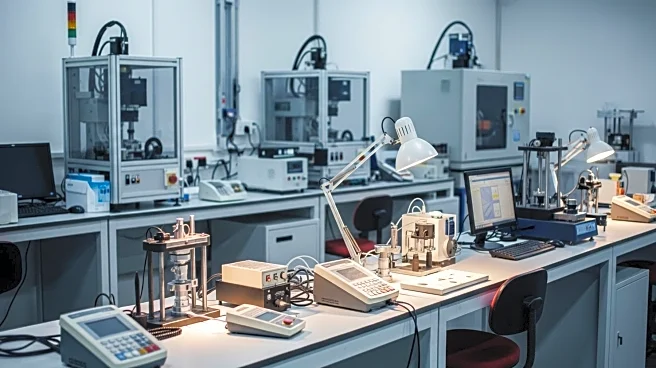What is the story about?
What's Happening?
Retailers are increasingly focusing on product testing as a crucial step before launching new products to the market. This process involves evaluating a product's performance with target markets, ensuring compliance with government regulations, and identifying potential cost savings. Product testing helps retailers understand customer preferences, improve product quality, and reduce returns. Various testing methods, such as concept testing, prototype testing, and quality testing, are employed to ensure products meet high standards. The importance of product testing is underscored by its ability to prevent defects and product failures, which can lead to costly repairs and returns. Retailers are advised to conduct thorough testing to avoid missing out on key benefits and to ensure their products resonate with consumers.
Why It's Important?
Product testing is vital for retailers aiming to launch successful products that meet consumer expectations and regulatory standards. By conducting comprehensive testing, retailers can avoid costly mistakes associated with product defects and non-compliance. This process not only helps in reducing returns and warranty payouts but also enhances brand trust and customer satisfaction. The insights gained from testing allow retailers to refine products, discover new use cases, and improve existing offerings. As the retail industry becomes more competitive, the ability to launch products that are well-received by consumers can significantly impact a company's market position and profitability.
What's Next?
Retailers are expected to continue investing in product testing as a strategic approach to ensure market success. This involves planning soft launches to gather feedback from early adopters and iterating on product designs based on consumer insights. Companies may also explore new testing methodologies, such as in-home usage tests, to gain realistic feedback on product satisfaction and usability. As the importance of product testing grows, retailers may increasingly rely on market research firms and testing platforms to conduct thorough evaluations. The ongoing cycle of testing and improvement is likely to become a standard practice for retailers aiming to maintain competitiveness and meet evolving consumer demands.
Beyond the Headlines
The emphasis on product testing highlights the ethical responsibility of retailers to ensure product safety and compliance. By adhering to rigorous testing standards, companies can protect consumers from potential hazards and avoid legal repercussions. Additionally, the cultural dimensions of product testing are significant, as diverse focus groups can provide insights into how products are perceived across different demographics. This approach not only enhances product appeal but also fosters inclusivity and cultural sensitivity in product development.
















